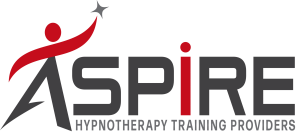Diploma Courses in Hypnotherapy: I sat down to my computer today to write this blog after an interesting discussion with someone who was considering training as a hypnotherapist. They were surprised to learn that all hypnotherapy diploma courses are not all created equal. She was very grateful to have that information, moving forward, and I thought it may be of use to other prospective students too.
Hypnotherapy is a distinctive and fascinating field that’s gaining more attention today. The application of hypnotic techniques to bring about therapeutic change is helping people manage a broad range of conditions, from breaking bad habits to managing pain or stress. Variety abounds when it comes to hypnotherapy diploma courses, that is why it’s important to understand that there are some key differences, which potentially impact your future in the profession.
Understanding the Current Landscape of Hypnotherapy Training
One crucial facet to recognise is that the hypnotherapy industry isn’t regulated, well at least not in the usual way that we think of regulation. The government has said that the industry can effectively regulate itself, so it is industry regulated. That means there are no minimum standards of qualifications set by the government.
There are minimum education standards set though. These are created by the peak body of hypnotherapy, the Hypnotherapy Council of Australia (HCA) in collaboration with It’ s member associations and hypnotherapy schools. Personally, I think that is wonderful that the people working in the industry are the ones who collaborate in these very important decisions, rather than government officials, who are not involved at the ‘grassroots’ level.
Let me take a moment here to clarify an important aspect. Above I have discussed the minimum education standards set by industry bodies like the Hypnotherapy Council of Australia, it’s worth mentioning that these guidelines, as helpful as they are, aren’t set in stone. By that, I mean, they’re not enforced or mandatory to practise as a hypnotherapist in Australia.
Surprising, isn’t it? However, as committed professionals, I believe it’s up to us to embrace these standards voluntarily. Because, at the end of the day, it’s about being the best we can be — for ourselves, our profession, and, most importantly, our clients. So, while these standards may not be enforced, they offer a solid foundation.
A Deregulated Profession
This lack of stringent control has an upside, like most things in life. It makes the profession more accessible, welcoming a broader range of professionals beyond the medical cohort into its realm. In the past, the industry was government regulated and many giants of the profession invested a lot of time and energy into deregulation. The reason for pursuing deregulation was based on accessibility. This allowed the hypnotherapy field to expand beyond the medical professionals, opening the doors to an array of individuals who are passionate about harnessing this remarkable practice to help people. When the profession was regulated, the use of hypnosis was restricted to GPs, psychologists, psychiatrists, dentists and the like. Now, thanks to deregulation, the power of hypnotherapy can be wielded by a much wider array of practitioners to bring about positive change.
Deregulation, while broadening the profession, also uncovers a rather tricky conundrum – it can give rise to inconsistency within it. It’s like having a favourite recipe but no distinct measurements—everyone tends to add their own spin to it. In the context of hypnotherapy training, this means you’ll find a broad spectrum of courses, each with its own unique approach and content. So, while variety can be nice, it also leads to a lack of standardisation. That’s why it’s important to be diligent when choosing a course, ensuring it has the right ingredients to set you up for success in this exciting field.
The Inconsistencies within Diploma Courses
When you start looking into hypnotherapy diploma courses, you soon realise there’s a whole smorgasbord of options out there. And I mean real variation—from what’s on the curriculum, right down to how long the course is and how intensely it’s delivered. Some programmes might focus heavily on theoretical foundations, while others are more hands-on, immersing you in practical scenarios right away. Then there’s the matter of duration—some courses might be over in a quick couple of days or weeks, while others are more of a year-long commitment. It’s like stepping into a marketplace where every stall is selling a different type of apple! How do you decide?
Now, you’d think with all this variety, there’d be a clear price range, right? Well, with the lack of a standardised curriculum, the costs are as varied as the courses themselves. You might find a weekend course that is similarly priced as a more intensive programme. This makes it incredibly challenging to do a comparison from course to course.
The Importance of Association Membership
While every hypnotherapy diploma course promises to equip you with the necessary skills and knowledge, and they might very well do that, there’s another important consideration to make. Will your chosen course meet the membership standards required by an Australian Hypnotherapy Association? You may wonder why this matters. Well, being a member of such an association not only offers you a wealth of support and resources but is often a mark of credibility in the eyes of prospective clients.
Unfortunately, due to the diverse nature of hypnotherapy education, not all courses align with these associations’ requirements. It’s akin to having a driving license that’s not recognised everywhere—you have the knowledge and the skills, but not everyone may acknowledge it. Therefore, it’s well worth spending extra time scrutinising potential courses against the membership criteria of these associations to ensure your investment in education pays off in enhanced career opportunities and client trust.
The Future: New Education Standards from HCA from 2024
We can’t discuss the importance of quality training without mentioning the industry’s self-regulation and its pivotal role in consistency and competence. Given the profession’s deregulated nature, it falls on us, the hypnotherapists, to ensure that we’re achieving and maintaining high standards of practice. This drive for excellence is precisely what we, at Aspire, strive to cultivate.
The HCA, (Hypnotherapy Council of Australia) in collaboration with associations and schools, is working to raise the profile of the hypnotherapy profession and as part of that goal, they have set requirements to help make education in hypnotherapy more standardised. These new education standards come into effect in January 2024, and are aimed at fostering enhanced standards of excellence within the profession. Their focus is on ensuring that all registered hypnotherapists are not just trained but also adequately trained. Aspire’s Diploma of Clinical Hypnotherapy was written to directly address these new standards, aligning with the HCA’s vision.
Final Considerations
In conclusion, the hypnotherapy industry’s current unregulated nature can be a bit of a wild card, bringing both diversity and confusion. Therefore, it’s essential to be vigilant when choosing a hypnotherapy diploma course. Look for reputable training providers and consider association memberships that help uphold professionalism and community within the field. A well-chosen course will not only provide quality hypnotherapy education but also provide opportunities for ongoing growth and support through membership to Australian hypnotherapy associations.


